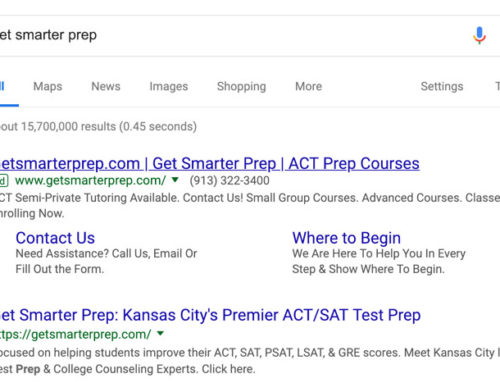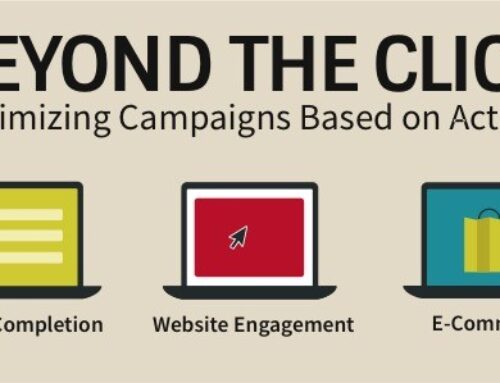Google screwed up advertising.
Well, that’s not completely fair. It may be more accurate to say that Google screwed up online advertising expectations. Let me explain.
In the days before the internet, advertisers would invest in television, radio, newspaper, billboards, magazines and yellow pages. These same advertisers would tell you that half of their advertising was wasted, but that they couldn’t tell which half.
It was impossible to truly measure the ROI of most of these advertising channels. With the exception of a call tracking number in a yellow pages ad or a coupon in the paper, most advertising built up the brand and awareness, but was impossible to track. And yet, they continued to invest, because these advertising mediums grew business.
I’m sure that we have all heard a radio commercial or seen a billboard that has influenced a buying decision, and that we never mentioned this to the business when we made our purchase. Television is notoriously hard to track, as are magazine ads. This is because most advertising is observed while we are doing other things. No one goes looking for billboards, and no one fast forwards through their favorite shows just to watch the commercials. These advertisements interrupt us while we are focused on other activities.
The exception, of course, is the yellow pages. If you’re looking in the yellow pages, it’s probably because you have a need and you are searching for a business to provide a solution. YP is action-based advertising. It’s probably fair to measure the ROI of a yellow pages ad using a tracking number, because if you aren’t getting phone calls, the ad probably isn’t working.
So how is it I’m so frustrated with Google? And how did they mess up online advertising expectations
Google came into this world where very little advertising could be tracked and started showing business owners everything under the hood. A Google AdWords campaign can tell you how many clicks you’re getting, how much every click costs, which keywords people are using and which ones work, what time of day people are searching, the geography of where they search, and Google analytics can even tell you what pages they visit and how much time they spend there. The amount of data is staggering and for the first time since tracked yellow pages, business owners could actually measure the effectiveness of their advertising investment.
Here’s the problem. Because Google search is often the first internet marketing channel that business owners try out, they come to associate this ability to track and measure results not with search itself, but with all kinds of internet marketing. They believe that the internet is the holy grail of advertising and that their days of “wasting half of their advertising dollars” are behind them.
They believe that just because an ad can be clicked, that it is meant to be clicked. They associate the click with success and don’t consider that there are other ways to measure online advertising success – even when the online advertising in question is not an action-based advertising medium.
Let’s consider social media first. The BI (before internet) version of social media was networking. Business owners would join the chamber or attend networking events so that they could meet other business owners, socialize, and create relationships that would lead to potential business down the line. The guy who went to social events just to talk about his business and hand out as many business cards (or gather them) rarely had long-term success using this strategy. This is not a strategy of immediate gratification, but one of consistent management. ROI is rarely measureable using this strategy.
But when business owners take this same strategy online, whether that’s via Facebook, Twitter or Google+, they come to think that Likes and Followers equal success. They look for clicks and phone calls and immediate customers as an indicator of success. But that is not what social media is about. It’s a long-term strategy for building relationships and brand awareness online. You simply cannot measure the success of social media in the same manner that you would an AdWords campaign.
Then there are display ads. The average internet users sees something like 1700 display ads every month, but you are actually more likely to get into MIT or summit Mount Everest than to click on a display ad. (Solve Media)
Does that mean that display ads don’t work? Well, over 5.3 trillion display ads were served to U.S. users last year. (ComScore) So I think it’s fair to say that someone (Pepsi, John Deere, Bank of America) must think they work.
But then, how should one define “work”? The average click through rate on display ads is less than .1%. That means that a lot of people are NOT clicking on them. So if they’re not clicking, then how do we know if they work?
I suggest we look at display’s BI ancestors for a fair comparison. Before the internet, the closest thing we had to online display ads would be display ads in newspapers and magazines. You could even argue that online display ads are like billboards on the internet superhighway.
You can’t click a newspaper or magazine ad.
You sure can’t click a billboard.
So why do we expect the click to be the standard for the online version of these kinds of advertising channels?
Display ads are a visual advertising medium. They are meant to be seen. They are meant to brand a business, build awareness and create buzz. Just because they aren’t being clicked, that certainly does not mean they aren’t working.
Let’s consider that display ads, like their ancestors, interrupt us while we are doing other things. If I see your ad while I’m reading my favorite blog, I’m unlikely to just stop doing what I’m doing so that I can click on your ad. If I’m skimming Facebook and your ad appears on the side or even in my news feed, I may not think to leave Facebook and go see your site. I’m busy doing other stuff. I see you there. I’m just not ready to stop what I’m doing so that I can click on your ad.
That doesn’t mean your ad isn’t having an impact on me. I see your great deals and your variety of products. The next time I’m in market for what you’re offering, I’ll probably think of you first. And when I do, I won’t surf the web, looking for your display ad so that I can click on it. No. I’ll probably just Google your name or go directly to your website.
This happens every day. People see display ads, just as they saw magazine and newspaper ads, or even television. They interrupt what we are doing, but rarely motivate us to take action on the spot. Instead, they work on our subconscious. They permeate into our brains so that when we are ready to make a purchase, we know whom to consider.
Personally, I’m considering trading in my iPhone for either a Samsung or a Niktidis phone. I’m leaning toward Samsung because of all of their great commercials. I don’t know much about the Niktidis because they don’t advertise. Wait. There’s no such thing as a Niktidis phone. I made that up. But did I make my point? I’ll bet you were saying “I’ve never heard of a Niktidis.” And you were right. Would you buy a phone you had never head of ? No, of course you wouldn’t. So how important is it that your potential clients have heard of you?!
Let’s look at Google AdWords one more time. Google has one job. They post your site on their search engine with the one goal of getting users to click. That’s the only job of a Google AdWords campaign. Get the click. If you’re not getting clicked on a search campaign, then it’s failing. Google has said that the average CTR for Adwords is only 2%. That means that they are failing at their one job 98% of the time!
Here are the big take-aways that I hope you get from this article.
1. Just because the advertising is online, that does not mean that you can measure it as you would a search campaign.
2. Besides Google search, most online advertising is visually based, and not action-based.
3. There’s so much more to online advertising than the click.
4. The old methods of measuring “increased foot traffic” and “increased sales” should to be applied to online advertising as well. (Even when those methods aren’t full proof.)
Am I saying that we should go back to the idea that “half of our advertising dollars are wasted?” No. The internet does give us a lot more ability to track and measure results than it’s BI ancestors. But I am saying that there will be positive impact and successes from online advertising that can’t be tracked. Just keep that in mind as you branch out into online marketing channels that aren’t search.
Thanks for reading.
David McBee





